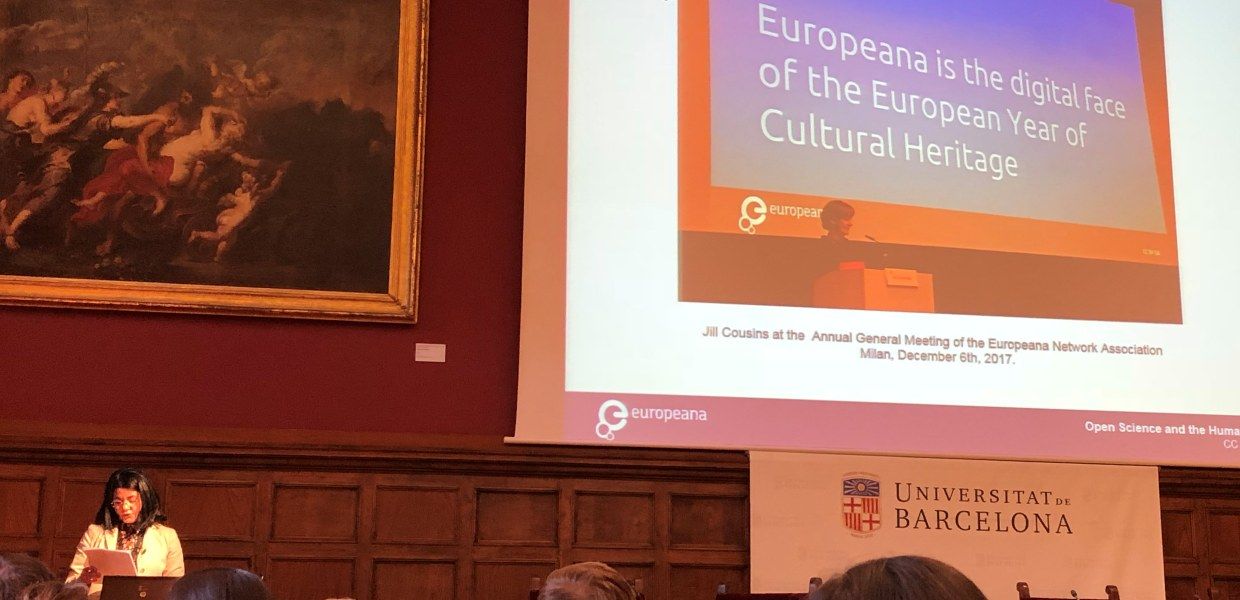Open Science is all about new ways of approaching the scientific process using digital tools. It is based upon sharing knowledge and has the potential to contribute to greater research results and impact.
The European Commision and Open Science
At the end of May 2018, the European Commission published an update to its Access to and Preservation of Scientific Information in Europe report. This provides an overview of the progress made by the EU Member States in implementing an earlier version (2012) of that report. The 2018 report assesses the policies for open access to publications and research data, as well as for the development of e-infrastructures.
A major undertaking over the next few years, presenting a range of challenges and opportunities, will be the European Open Science Cloud (EOSC) - the cloud for research data in Europe that the European Commission is working on with EU Member States.
Open Science and Europeana Research
In the New European Agenda for Culture of the European Commission presented in May, the Europeana Foundation is called upon to strengthen its link to the research world. Open access has been the backbone of the Europeana Foundation’s mission since its beginning over ten years ago. This commitment to open access extends to encouraging researchers and institutions to embrace the principles of Open Science.
Europeana Research is strongly committed to promoting awareness and use of the Europeana platform in academia, its major achievements in terms of content and tools, and its upcoming developments. We also support early career social science and humanities (SSH) scholars within the Research Grants Programme, collaborate with research infrastructures, and hold a dialogue with research communities about EU policies.
Open Science and the Humanities Conference
It is in this context of a Europe-wide push for openness that the University of Barcelona held the Open Science and the Humanities Conference on 21 June 2018 in its historic Aula Magna room.
150 research professionals attended the conference, learning about projects embracing the values of Open Science, as well as leading European e-infrastructures active in the Humanities, specifically Dariah, Ariadne, Clarin and, of course, Europeana.
Representing the Europeana Foundation, we introduced our work in academic research, showing how open cultural data supports discovery, reuse and innovation in digital humanities.



